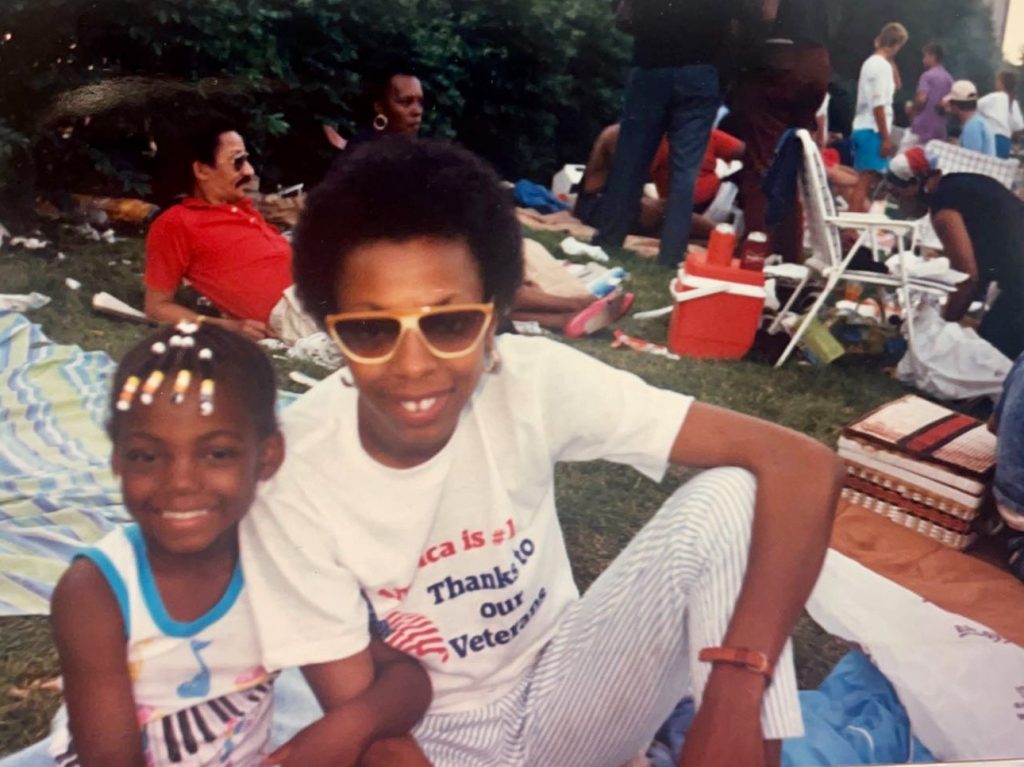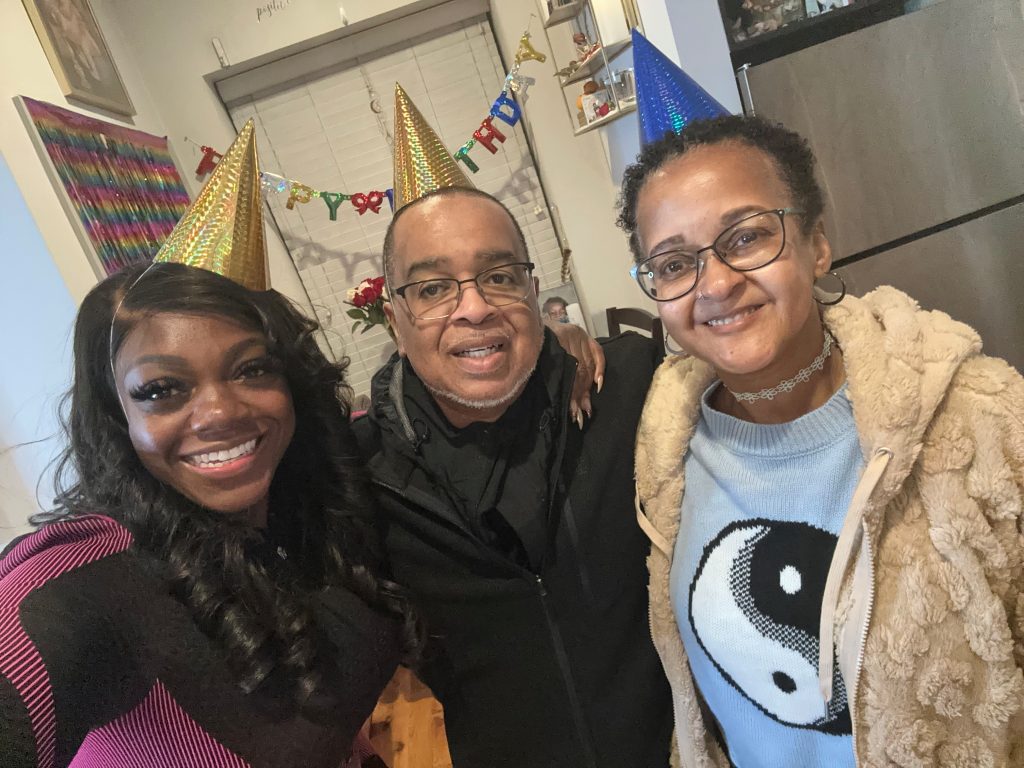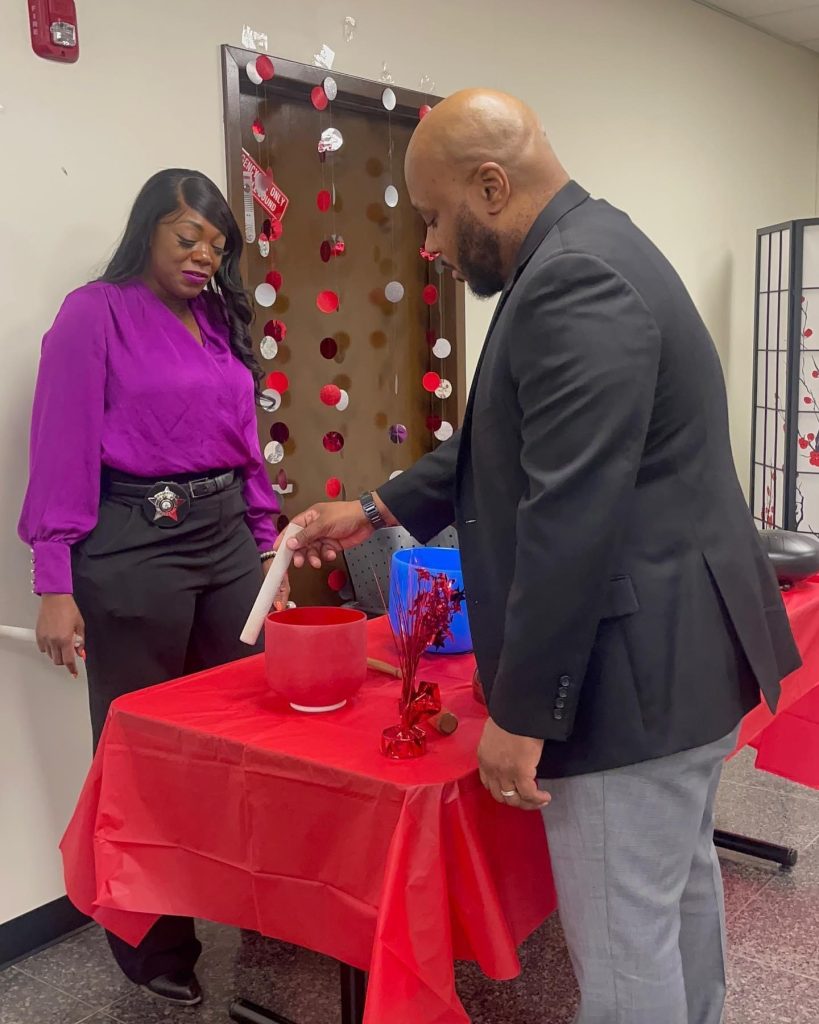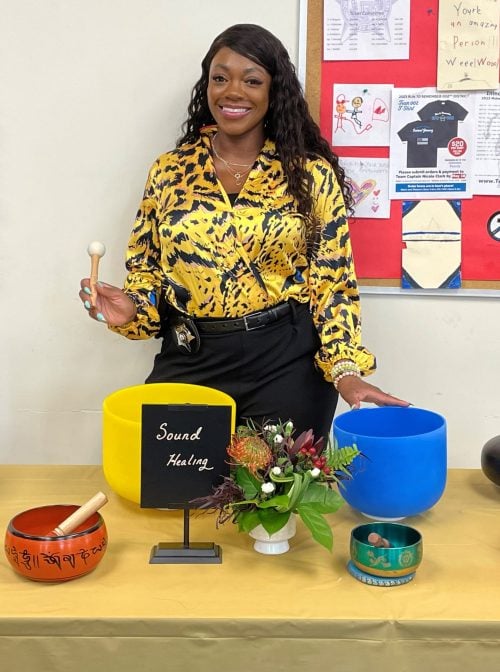For Jermira Trapp, a profound sense of loneliness taints her childhood memories.
Trapp was just five years old when her mother was forced to give her up for custody due to a long history of mental health issues. She still remembers how it felt when the police dropped her off at her father’s doorstep in Rogers Park, Chicago. Trapp still hears her grandmother saying, “Oh, it’s Derek’s girl. She’s colored.”
Trapp recalls feeling like an outsider in her father’s strict Catholic household of first-generation Belize immigrants. She was not allowed to have friends or go out to play; she felt judged for her darker skin, was often physically and emotionally abused, and had to sneak out to her neighbor’s homes to call her mother occasionally.
Dealing with years of abuse and feeling alienated at home led Trapp to her own struggle with mental health. She recalls feeling like she had to make herself smaller and quieter and walk on eggshells to simply exist in the world. The feeling persisted even years later when, in 2009, she joined the Chicago Police Department as a detective.

“I have unique identities. I am a Black woman in law enforcement,” says Trapp. “I thought I was supposed to be in a corner and hide somewhere. Just go along and get along. That’s how I showed up to work, feeling like my voice didn’t matter.”
But Trapp says her introduction to Nichiren Buddhism in 2012 – Buddhists who specifically believe that everyone can change their destiny and bring about the desired effects – altered the course of her life. Most importantly, she shares that her faith empowered her to value herself.
From seeking out therapists to working with a holistic life coach, Trapp credits her faith and mental health professionals for helping her find her voice in the world.
Whenever she has a particularly stressful day, she chants, “Nam-Myoho-Renge-Kyo,” Japanese Sanskrit words that translates to “devotion to the Mystic law of cause-and-effect through sound.”
She believes her faith gives her the “courage to say no, and the wisdom to know what to say, and the courage to say it.”
Today, Trapp describes herself as a “beautiful, bold, Black Bodhisattva of the world.” She is committed to becoming a mental health advocate in her community, especially in the police department, facilitating dialogues and events to raise awareness about the importance of mindfulness and introducing various self-care tools and resources.
In conversation with Interfaith America Magazine, Trapp shares what it means for her to be a Black Buddhist woman and detective, how her faith has shaped her life, and how she shows up as a mental health advocate in her community.
Editor’s note: The following conversation has been edited for length and clarity.
What led you to become a mental health advocate at work?
Growing up, I saw all these angry adults. They were sad. They were mad. And I used to think, okay, how can I help them? I would look at them and think I don’t want to be like this. Whenever I have an issue, I turn to my faith for answers – I try to understand what’s happening and what I need to do to transform this aspect of my life.
Having faith is not the absence of problems. It’s having the tool to navigate through it. So now that I have the tool, my compassion comes in for the people in my environment. They don’t have the tool. It’s just like right now: if our cell phone dies, it’s because the battery was low. The people around me didn’t have the tools to recharge themselves. As an adult, I can see that if you don’t take responsibility for your mental and emotional state, it’s going to take over your life.

How did you get introduced to Buddhism?
So, as I’ve shared, my dad was very strict, and we never went to church. My grandmother was Catholic, but she never taught me any prayers. But one thing my father did allow was to let me go to church with others. I’ve always had a seeking spirit – seeking a power that can help me feel better than the people around me made me think. I have always been seeking some sort of comfort through a spiritual practice or religion. I went to a Catholic school and then a Baptist church after college.
Then, when I started working, I met this guy with a great approach to life. He knew how to easily navigate any situation in any stressful environment. So, I became friends with him, and he taught me about Nichiren Buddhism, and I’ve been a practitioner ever since.
Has it been challenging to be a Black woman in law enforcement?
I grew up in Rogers Park, which is a very diverse part of Chicago, so I didn’t really experience any racism or sexism. I never got pulled over or stopped in traffic, so my perception of the police was that they are here to serve you.
When I started my job, I began experiencing this silent tension. I remember when I was a probationary officer. I was on duty on the west side of Chicago, wearing my uniform and with my coworker in a squad car. And I began noticing other Black people looking at me with such hate and anger – I was like, oh my god, what am I doing wrong? My coworker turned to me and said, “Oh, they’re not looking at you; they’re looking at what you represent, so ignore that.” But seeing that anger toward what I represent made me very sad. I told myself I would show up differently and bring a more humanistic approach to my work.
But that’s where my faith comes into play with compassion. Compassion is also wisdom. My faith is why I can empathize and understand why people are reacting like that to me. Instead of meeting anger with anger and frustration with frustration, I just keep myself at a level of compassion where I can show up professionally.
How have you advocated for mental health in your workplace? What has the response been to that?
In 2018, one of my teammates died by suicide. I didn’t like how the department dealt with it; we were asked to just continue going out and doing our job. We saw the body. It was a traumatic incident, and that’s when I realized that something needed to change.
Law enforcement people are nervous to see a professional therapist or counselor because they don’t want to be labeled a certain way or say something that might jeopardize their job.
I put a diffuser with essential oils like lavender and lemongrass on my desk. It was interesting to see the shift in people. In the past month alone, I’ve had several men who don’t come and speak to me, walk up to my desk, and just take in the diffuser smell – sometimes they will say, “I love the way this f—ing smells.” One guy said, “It smells so great. It makes me so sleepy!” but I think he meant it makes him feel relaxed. It’s an excellent reminder that showing up fully and authentically and cultivating a space so I can stay focused and do my work can be small things that impact other people’s responses to me.
You mentioned hosting a few “no more bypassing” events at work. Can you tell us about them?
The reason it’s called “no more bypassing” is because when I would be on patrol, we would see someone shot or other trauma, and they would need to be rushed to the hospital – and the ambulance would say, “We can’t go there, they’re on bypass there.” Which meant that they were not accepting new patients. I wanted the event to be inclusive to everyone.

We had an auditorium, and I decorated it with streamers; I had jars of lifesavers with notes that said, “Thank you for being a lifesaver!” We booked massage therapists and massage chairs and had adult coloring books, clay, and Yoga rooms with stretching sessions. We also got boxed lunches for everyone. We had therapy dogs – and more men were responsive to that; they would be typing at their desks and light up when a dog walked up to them. We really utilized the space. Those who didn’t want to get a massage or do stretches would be at their desk with a diffuser or mold something with clay. It was overall very successful. People were surprised but said they felt appreciated.
As you mentioned, you’re a Black Buddhist woman in law enforcement advocating for mental health – it’s a unique intersection of identities that many might believe are at war with each other or are contradictory. What message do you have for people who disagree with your identities?
When I am chanting, I ask myself how I show others through my behavior? I believe in unwaveringly standing up with integrity and truth and staying true to myself with unlimited compassion. You know how a parent is constantly forgiving their kids? Someone once advised me to look at people as a child until they show themselves to be adults. That’s an interesting perspective because many adults are wounded children who show up and project their hurt onto others.
So, I remind myself to take care of my mental and emotional health. I like to dance and go for long walks; I just really have to ground myself. The other night, I went for a walk, and it wasn’t cloudy, so I could see the stars. I just let the fresh air hit my body, and it was a reminder of how small life is compared to how big things are up there – the vastness of the universe and the cosmos are here to support you, so who cares what others feel?
I want to encourage people that you need something to recharge you in this day and age. You need something that connects you to your heart more than your mind – because until you have a heart-to-heart dialogue with a stranger, you won’t see how there are more commonalities than differences between us. We spend so much time arguing over things, but across all religions, the message is to show up authentically as yourself in the world, and I have found that to be so liberating.




